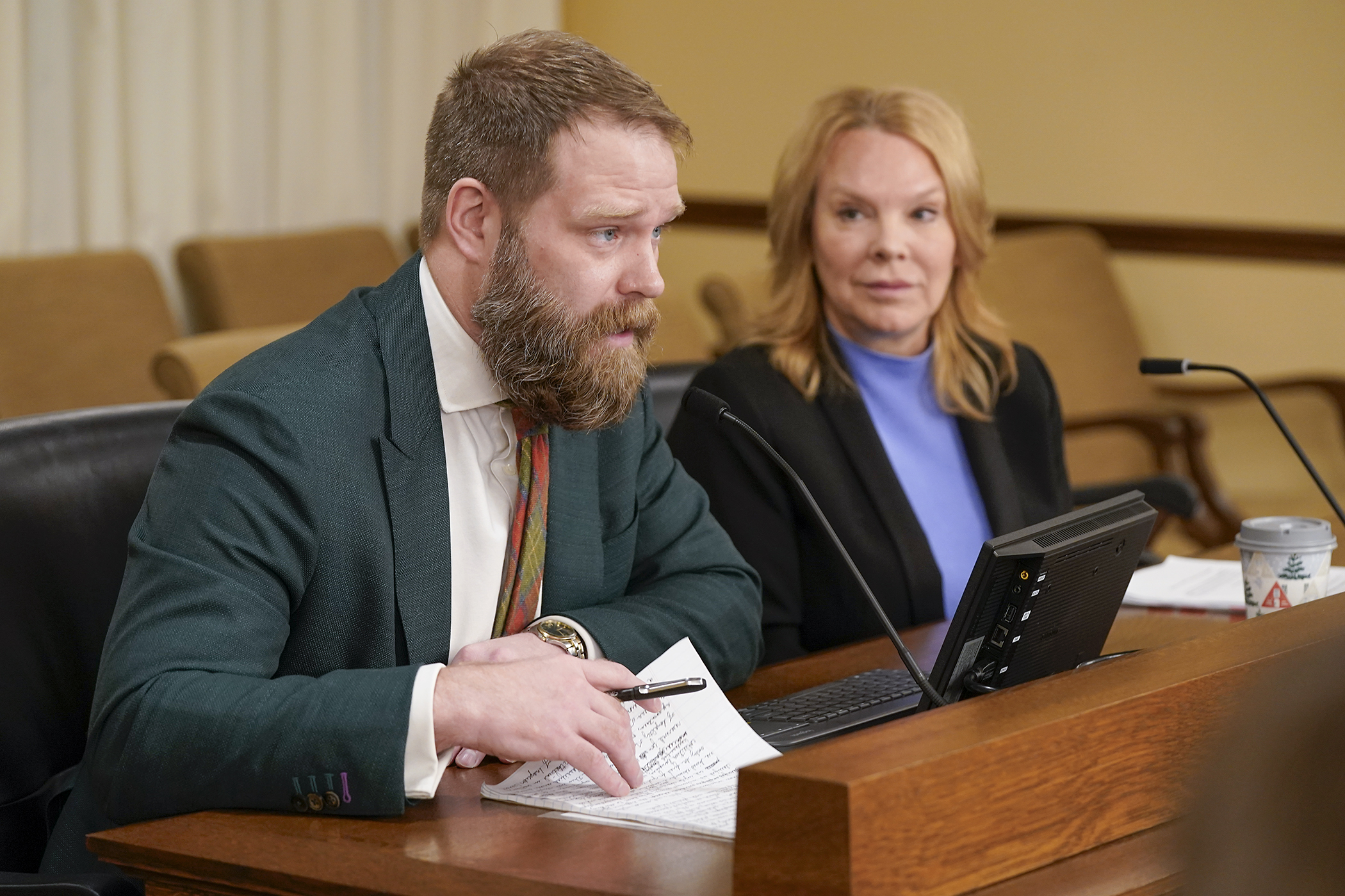Bill to create new state watchdog post advances in House

Creating a new office could save state dollars.
Targeting fraud has been a target for House Republicans, a point emphasized by the first bill introduced in the 2025 session.
HF1 calls for an Office of the Inspector General to be created in the legislative branch and overseen by the nonpartisan Legislative Audit Commission. Its charge would be to “investigate and combat fraud, waste, and abuse in state government.”
“We want this to be a nonpartisan, nonpolitical office that has authority and autonomy so they can actually do their job without threats from anyone or any angle,” said Rep. Patti Anderson (R-Dellwood), who sponsors the bill, as amended, including an amended delete-all amendment.
Approved Tuesday by the House State Government Finance and Policy Committee on a split-voice vote, the bill was sent to the House Human Services Finance and Policy Committee.
Anderson said Minnesota has gubernatorial-appointed inspector generals in six agencies, including the Education and Human Services departments, but it “hasn’t worked.”
“There’s over a half a billion dollars of fraud that is being prosecuted and we expect there is going to be a lot more coming out … According to (former U.S. Attorney for Minnesota Andy) Luger, Minnesota has the worst fraud of any state.”
Anderson acknowledged the bill remains a work in progress and has plans to meet with other interested parties in developing a final product.
Rep. Ginny Klevorn (DFL-Plymouth) and Rep. Mike Freiberg (DFL-Golden Valley) expressed frustration that the bill received a vote when it is far from finished, especially in areas under the committee’s jurisdiction. Rep. Jim Nash (R-Waconia), the committee chair, countered that happened in recent years with “a number of bills” when the DFL was in charge, including paid family medical leave.
 Devin Bruce, with the Minnesota Association of Professional Employees, testifies on HF1 before House lawmakers Feb. 18. Sponsored by Rep. Patti Anderson, right, the bill would establish an Office of the Inspector General. (Photo by Michele Jokinen)
Devin Bruce, with the Minnesota Association of Professional Employees, testifies on HF1 before House lawmakers Feb. 18. Sponsored by Rep. Patti Anderson, right, the bill would establish an Office of the Inspector General. (Photo by Michele Jokinen)In a letter to the committee, Erin Campbell, commissioner of Minnesota Management and Budget, expressed myriad concerns with the bill, including that no other state has an inspector general with executive branch oversight responsibilities appointed by a legislative entity and the change would inappropriately be a legislative role with executive function.
“The Minnesota Constitution supports a strong division among branches of government while this bill proposes legislative supervision of an office with the authority to embed employees of that office in state agencies and ‘impose, or require a state agency to impose’ specific executive actions,” she wrote.
Concern was also shared by a union official that state employees would transfer from executive branch positions governed by a collective bargaining agreement to a public employer without a similar framework.
Two of five DFL-offered amendments were added: removing a section that would, in part, transfer state grant management and oversight powers and duties from the Administration Department to the new office was offered by Freiberg. Coming from part of an amendment offered by Rep. Michael Howard (DFL-Richfield), office staff would be deemed public officials for purposes of conflict of interest and statement of economic disclosure requirements.
Related Articles
Search Session Daily
Advanced Search OptionsPriority Dailies
Speaker Emerita Melissa Hortman, husband killed in attack
By HPIS Staff House Speaker Emerita Melissa Hortman (DFL-Brooklyn Park) and her husband, Mark, were fatally shot in their home early Saturday morning.
Gov. Tim Walz announced the news dur...
House Speaker Emerita Melissa Hortman (DFL-Brooklyn Park) and her husband, Mark, were fatally shot in their home early Saturday morning.
Gov. Tim Walz announced the news dur...
Lawmakers deliver budget bills to governor's desk in one-day special session
By Mike Cook About that talk of needing all 21 hours left in a legislative day to complete a special session?
House members were more than up to the challenge Monday. Beginning at 10 a.m...
About that talk of needing all 21 hours left in a legislative day to complete a special session?
House members were more than up to the challenge Monday. Beginning at 10 a.m...